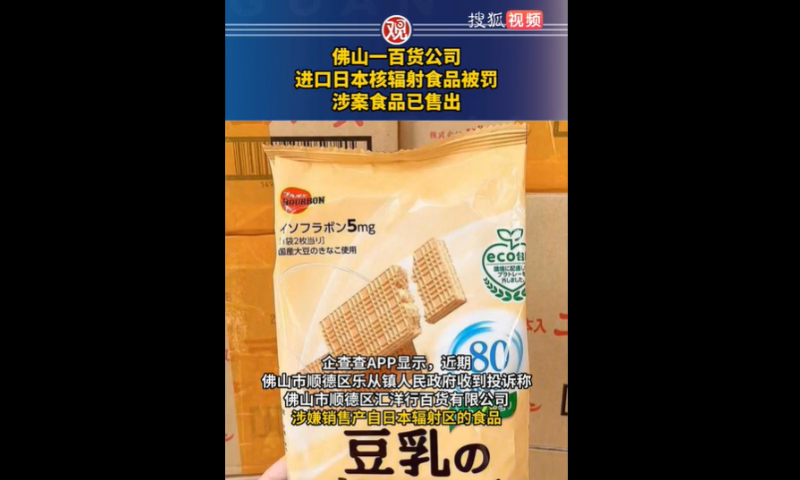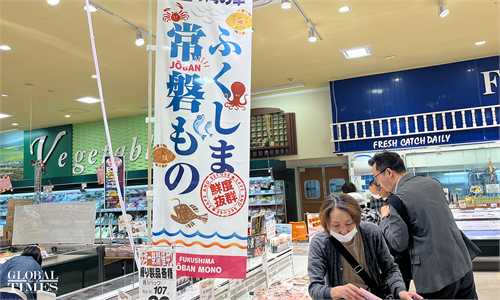Guangdong department store fined $1,400 for selling snacks from radiation-affected regions in Japan

Photo: Screenshot of video from guancha.cn
A Guangdong-based department store has been fined 10,000 yuan ($1,400) for selling snacks produced in radiation-affected regions in Japan, from which imports are forbidden.
Huiyanghang Department Store in Foshan city was selling food produced in Japan's radiation-affected prefectures, from which imports were prohibited by China's General Administration of Quality Supervision, Inspection, and Quarantine in early 2023, according to the punishment notice released by the local government of Lecong town in Shunde district, Foshan, in South China's Guangdong Province.
The food the department store purchased included eight bottles of peach drink from Nagano prefecture, 24 packets of jelly from Gunma prefecture and 10 packets of waffles from Niigata prefecture. Most of these food products were sold before March 7, 2023 and the store has no system for verifying or recording its goods purchases.
In 2017, AQSIQ mandated that importing enterprises, including cross-border e-commerce, were not allowed to import food products from 10 Japanese prefectures. These prefectures are Fukushima, Gunma, Tochigi, Ibaraki, Miyagi, Niigata, Nagano, Saitama, Tokyo, and Chiba. This decision was made in response to the 9.0 magnitude earthquake that struck off the Japanese coast in March 2011, triggering a tsunami that claimed the lives of approximately 18,000 people. Additionally, it resulted in the world's worst nuclear disaster since Chernobyl in 1986.
According to China's Food Safety Law, food items that are explicitly prohibited by the state for specific needs such as disease prevention are banned from production and operation in China.
As Japan's plan to dump Fukushima's nuclear-contaminated water approaches, an increasing number of Chinese netizens are expressing their concerns regarding the safety of not only seafood products but also other Japanese food products. Some individuals have even shared methods on how to check whether a specific Japanese food product is from radiation-affected regions.
Global Times

